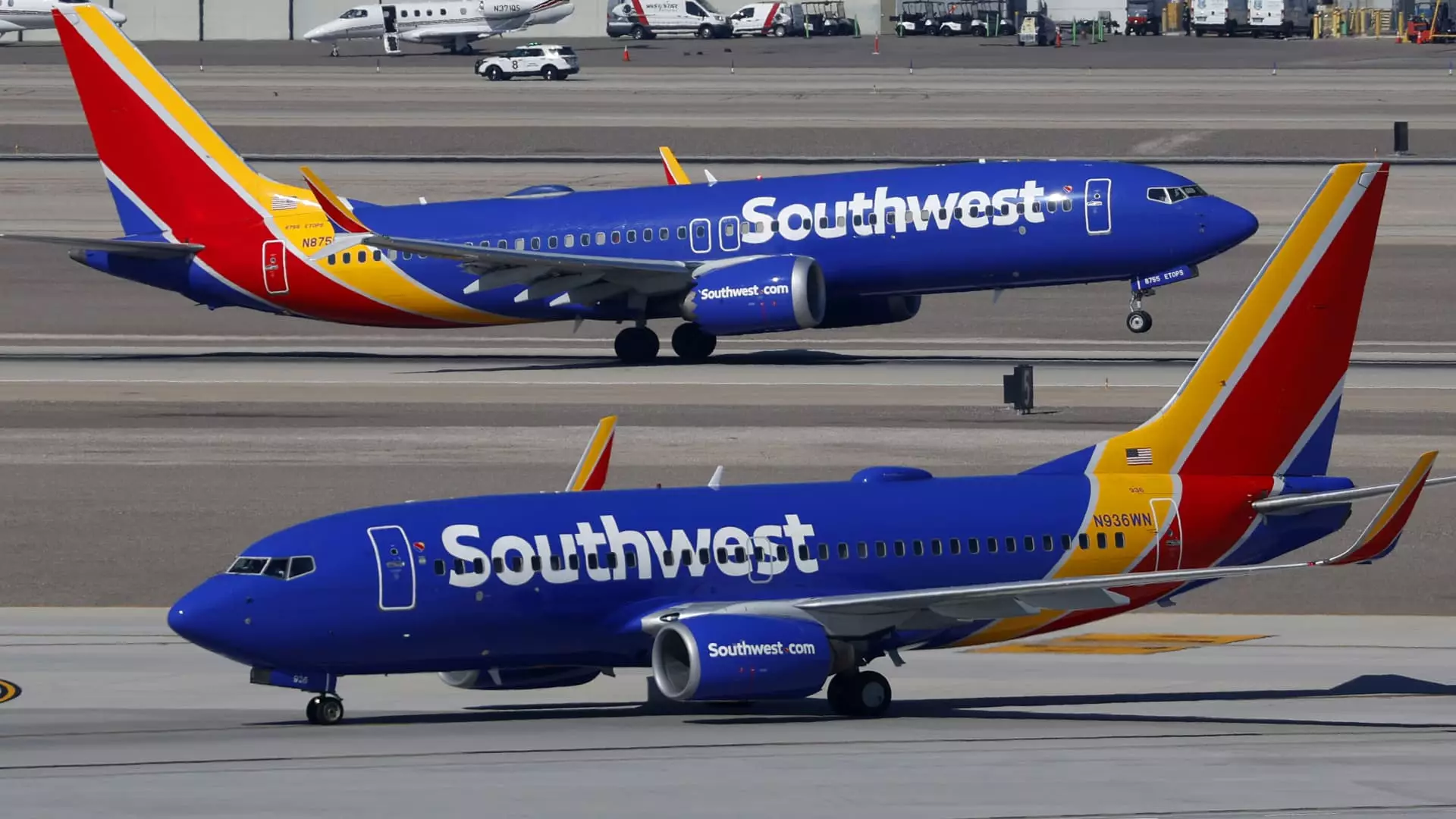In an unfolding narrative of uncertainty, Southwest Airlines has made a distressing announcement regarding a considerable reduction in its domestic flight capacity for the latter half of the year. This sudden decision comes on the heels of an unsettling trend in domestic bookings, which are showing signs of a decline. The airline’s management revealed that they expect unit revenue to remain flat, or potentially plummet by up to 4% compared to the same quarter last year—a stark pivot that cannot be ignored. As the airline navigates through this turbulent economic landscape, their strategy seems to indicate that the executives have lost their grip on predicting consumer behavior.
Management’s Fragile Forecasts
Adding to the turmoil, Southwest has chosen not to reaffirm its earnings guidance for the upcoming years of 2025 and 2026. This lack of conviction sends a disquieting message to investors, underscoring the unpredictable nature of the U.S. economy. Following suit, competitors like United Airlines and Delta Air Lines echo similar sentiments, revealing a shared reluctance to commit to long-term forecasts. These signs suggest a broader malaise affecting the airline industry, and readers should take note: if industry giants cannot pin down revenue estimates, smaller players are likely even more vulnerable.
Shifting Strategies: A Desperate Move?
In a bid to revitalize its business model, Southwest has rolled out a series of controversial changes over the past year. Selling fare tickets through third-party sites and moving away from its beloved open-seating policy to assigned seating indicates a desperate attempt to modernize in a highly competitive market. Coupled with the introduction of restrictive economy tickets and the end of the long-held free luggage check-in, one must question if these changes are genuinely beneficial or merely a panic response to dwindling revenues.
Activist hedge funds like Elliott Investment Management have exerted pressure for these changes, demanding that Southwest innovates to effectively compete against higher-end carriers with luxurious offerings. Is it ethical for airlines to compromise customer experience for revenue? The recent pivot away from providing two free checked bags—a long-standing hallmark of the Southwest brand—demands scrutiny. Loyalty has been a vital currency in the airline business; alienating long-term customers could have ramifications that total more than just immediate revenue gains.
A Mixed Bag of Financial Performance
Despite these bleak developments, Southwest recently reported net losses that were less severe than previous quarters, along with a slight uptick in revenues compared to last year. Yet, with a net loss of $149 million, it seems the airline’s struggles show no signs of abating. The incoming quarterly earnings call promises to be a moment of reckoning, as analysts will undoubtedly press executives on their precarious positioning. How much longer can Southwest flirt with defeat while proclaiming positive outcomes from their initiatives? The answer will hinge on whether or not they can reverse course and regain the trust of the flying public in a volatile economy.
The unfolding landscape in the airline industry is a cautionary tale of how rapid change can accompany crises. Stakeholders should contemplate how far Southwest Airlines—faced with external pressures and internal restructuring—can manage to retain its customer base amidst these changes. As competition grows fiercer, the road ahead looks rocky, and if not navigated wisely, may lead to a series of irreversible missteps.

